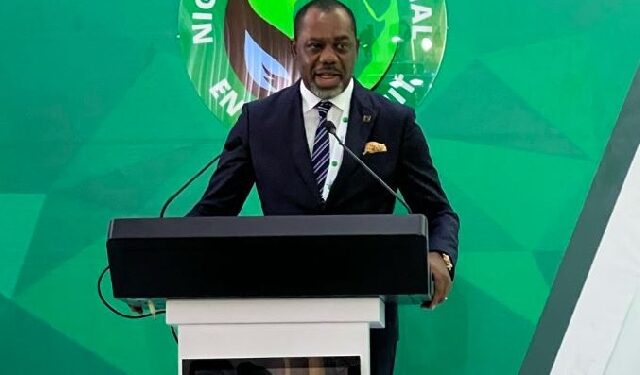Africa’s Gas-Centric Industrialization: Energy Minister proposes financial collaboration as Ghana sets eyes on hosting African Energy Bank
Ghana looks to Nigeria as a principal supplier of cost-effective and reliable gas, complementing domestic sources and the West African Gas Pipeline. The proposed Nigeria to Morocco pipeline, Dr. Prempeh believes, will not only stimulate gas patronage but also expand the market across the continent, particularly in countries along the pipeline route.

In a pivotal address at the Gas Day session of the Nigeria International Energy Summit, Dr. Matthew Opoku Prempeh, Ghana’s Energy Minister, underscored the transformative role of natural gas in steering large-scale industrialization across Africa. Dr. Prempeh emphasized the imperative for African governments to financially contribute to the development of natural gas resources, deeming it a critical factor in sustaining viability.
Speaking on the importance of mobilizing funds, the Minister advocated for leveraging the support of the African Energy Bank, championed by Ghana and set to establish its headquarters in the nation. He proposed utilizing this platform to secure competitive financing, accelerating the development of natural gas projects and fostering infrastructure for research, processing, transportation, and transformation of the continent’s abundant natural resources.
- Advertisement -
“We can leverage the African Energy Bank which Ghana is supporting and whose headquarters Ghana expects to host, to raise competitive financing for the faster development of natural gas projects and the development of infrastructure for research and development, and for processing, transportation and transformation of our natural resources,” he said.
- Advertisement -
Africa, home to some of the world’s largest gas reserves, sees Nigeria at the forefront with over 200 trillion cubic feet of gas. Dr. Prempeh highlighted other key players in the Sub-Saharan region, including Mozambique, Angola, Senegal, and Cameroon. Ghana, meanwhile, intensifies exploration and development efforts for sustainable oil and gas production.
- Advertisement -
In his forward-looking vision, the Energy Minister anticipated a decade marked by substantial investments in natural gas infrastructure. This encompasses pipelines, LNG terminals, power plants, and petrochemical establishments. He sees this as a unique opportunity for Africa to assert control over its destiny.
Dr. Prempeh stressed the centrality of infrastructure development in unleashing the untapped potential of natural gas resources. He commended initiatives such as Dangote’s oil refinery and petrochemical complex in Nigeria, and Ghana’s efforts, including the recently commissioned oil refinery and ongoing projects like the Tema LNG Terminal.
Ghana looks to Nigeria as a principal supplier of cost-effective and reliable gas, complementing domestic sources and the West African Gas Pipeline. The proposed Nigeria to Morocco pipeline, Dr. Prempeh believes, will not only stimulate gas patronage but also expand the market across the continent, particularly in countries along the pipeline route.
Source:norvanreports
- Advertisement -



